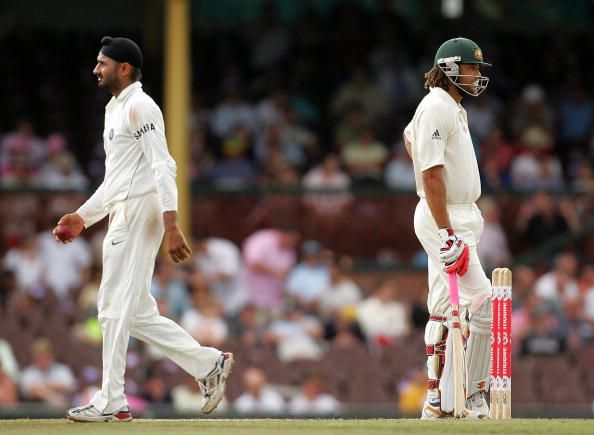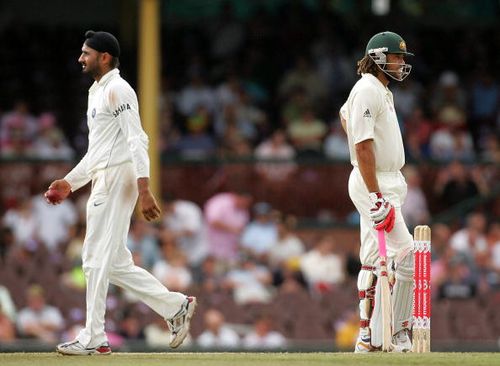
Top 10 Cricket Controversies: Part 2

This article is the second of a two-part piece on the various controversial incidents that have plagued the game of cricket. The re-telling of these events is not meant to offend anyone in particular, but only to emphasize how they have shaped the game of cricket over the years.Whether such controversies are for good or bad depends upon your point of view – this write up is not intended to pass judgement on those matters.
5. Stanford Super Series – The Rise and Fall of Allen Stanford
Texas billionaire Allen Stanford sponsored a series of Twenty20 matches in order to revive West Indies cricket. He created the Stanford 20/20, an exhibition-style, winner-take-all high stakes tournament featuring teams from all over the West Indies. It later culminated into a game between the England national side and a Caribbean all-star team called the Stanford Superstars. After much commercial disputes between the ECB, Stanford and Digicel, and in the wake of the billionaire’s arrest on fraud charges, the tournament was discontinued. Sponsoring a high-stakes game, for some cricket pundits, reeked of both disregard for cricket as well as too much commercialism. Stanford, in trying to emulate the late Kerry Packer, overdid it.
4. Fake IPL Player
Another well-publicized controversy rocked the Indian Premier League during its second edition in 2009. The under-performing Kolkata Knight Riders were targeted by an anonymous blogger who claimed to have inside access to team members and coaching staff. The prankster posted items portraying players and coaches in unflattering terms, told sordid stories, and generally painted the entire team in a very negative light. The rattled franchise ended up having the worst record that season, with captaincy being traded multiple times. In addition, two of the squad were sent home for not performing well, leading to intense speculation that one of them was the blogger in question. Although the entire operation turned out to be an elaborate hoax, it did shake up the franchise completely. It also revealed (very loosely) the power plays and machinations that went on behind the scenes of India’s T20 extravaganza.
3. The Mervyn Westfield-Danish Kaneria Scandal
Essex player Mervyn Westfield was found guilty of spot-fixing charges during a game against Durham in September 2009. He was revealed to have been offered £6,000 in exchange for conceding 12 runs while bowling in that match. Westfield’s teammate and former Pakistan leg spinner Danish Kaneria was also arrested on charges of fraud and spot fixing for the same game. While the young Westfield received a 4-month prison sentence (becoming the first English cricketer to be convicted of this crime), Kaneria was banned for life from playing cricket in England & Wales by the ECB.
2. The Monkeygate Scandal – Australia v/s India, Sydney, 2007-08
While this was an affair quite unrelated to betting or match fixing, it was the first instance of racism directed at cricketers in the 21st century. Australian all-rounder Andrew Symonds accused the feisty Harbhajan Singh of calling him a monkey, owing to his non-white ancestry. In addition, match referee Mike Procter implied that both Harbhajan and Sachin Tendulkar were lying in their testimonies, thus causing friction with the BCCI and nearly led to the abandonment of the rest of the tour. Umpiring errors also did not help, with Steve Bucknor being at the centre of most of the action. Eventually, the charges against Harbhajan were reduced to a one-match ban, but it also left a sour taste in everyone’s mouths.
1. IPL 2013 Spot Fixing Scandal
The latest scandal to hit the newly-anointed Pepsi IPL tournament was yet another instance of spot-fixing. Three players from the Rajasthan Royals were arrested and found guilty of deliberately under-performing in matches for money, using secret codes to indicate their compliance. Along with them, five bookies were also placed under custody in night raids conducted by the police. While the BCCI has responded swiftly with its ‘zero tolerance’ policy against wrong-doers and suspended the tainted trio, it remains to be seen how the incident will play out.
With each controversy, the issue of governance and ethics arises. How long can the cricketing powers continue to ignore the obvious signs of greed and malpractice in the game of cricket? How many times will the game’s pristine character be sullied? These questions scream out from the die-hard aficionados of a sport that has fast overtaken hockey in India. When will it all end?